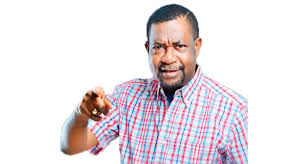The 2027 Nigerian presidential election looms large, and opposition figures are scrambling to establish a robust political platform capable of challenging the incumbent administration. Their initial hopes of utilizing the Social Democratic Party (SDP) as a vehicle for their ambitions have been dashed, forcing a reassessment of strategies and a renewed search for a suitable political home. The SDP, determined to retain its identity and autonomy, has rejected proposals for mergers or takeovers, leaving prominent figures like former Vice President Atiku Abubakar, former Anambra State governor Peter Obi, and several ex-ministers from the Buhari administration in search of a new direction.
The SDP’s rejection stems from a desire to avoid the instability and internal strife that often plague hastily arranged political mergers. Party officials have expressed concerns about potential legal challenges, leadership disputes, and distractions from the crucial task of campaigning. They emphasized the importance of maintaining the party’s core values and avoiding being absorbed into a larger entity where their voice and influence would be diluted. Instead of a full merger, the SDP proposed a “working arrangement,” a collaborative approach allowing parties to cooperate while preserving their individual identities and structures. This approach, they argue, would maximize resources and experience while minimizing the risk of internal conflict.
The initial attraction to the SDP was fueled by the defection of former Kaduna State governor Nasir El-Rufai to the party, which sparked speculation about a broader realignment of political forces. Disaffected members of both the ruling All Progressives Congress (APC) and the main opposition Peoples Democratic Party (PDP) saw the SDP as a potential haven, a platform where they could unite and present a united front against President Bola Tinubu in the 2027 elections. The prospect of a significant influx of experienced politicians, including a reported ten former ministers from the Buhari administration, further heightened the SDP’s appeal.
However, negotiations between the opposition leaders and the SDP leadership ultimately reached an impasse, primarily over the issue of leadership control. The SDP was unwilling to cede control of its structure to newcomers, insisting on maintaining its existing leadership from the ward level to the national level. This stance proved unacceptable to the opposition figures, who sought a more equitable power-sharing arrangement. The deadlock underscored the inherent challenges of forging unity among disparate political groups, each with its own ambitions and priorities.
Undeterred by the setback with the SDP, the opposition leaders are actively exploring alternative strategies. Discussions are ongoing with other political parties, and the possibility of reviving dormant parties or acquiring smaller platforms is also being considered. This approach offers greater control and minimizes the potential for internal conflicts that often arise in large-scale mergers. The opposition figures are meticulously evaluating their options, aiming to choose a platform that best serves their political interests and maximizes their chances of electoral success. Their determination to present a united front against the incumbent administration remains unwavering, even as the path to achieving that unity remains uncertain.
The search for a suitable political platform highlights the fluid and dynamic nature of Nigerian politics. Alliances shift, loyalties are tested, and new configurations emerge as politicians maneuver for position ahead of a crucial election. The rejection by the SDP has forced a strategic recalibration within the opposition ranks, compelling them to explore a wider range of options. The coming months will be critical as they weigh the advantages and disadvantages of each potential pathway, seeking the optimal route to achieve their shared goal of challenging the current government and securing victory in the 2027 presidential election. This ongoing realignment of political forces promises to reshape the political landscape and add another layer of intrigue to the already complex dynamics of Nigerian politics.














